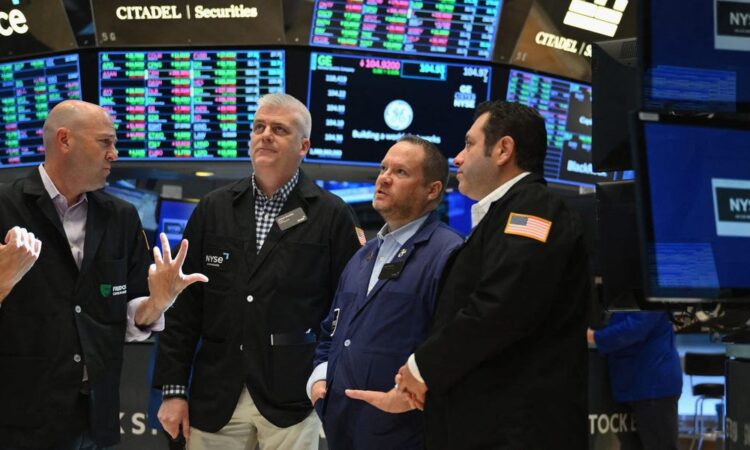
- The chief economist for UBS Global Wealth Management said soaring stocks may suggest capital is misallocated in the economy.
- Politicians often incorrectly point to a stock market rally as a sign of a healthy economy, he said.
- Meanwhile, US stock investors are the most bullish they’ve been in two years.
Conversations about the market often take a familiar shape.
When stocks go up, it’s a good day. When stocks go down, it’s a bad day.
Yet as the saying goes, stocks are not the economy. That doesn’t stop politicians and media from sometimes conflating the two when convenient. Doing so is often misleading, according to Paul Donovan, the chief economist for UBS Global Wealth Management.
The point of any market, he told Business Insider, is to price an asset fairly, not to make the price of assets go higher.
“If you have got an asset price that is going up because expectations about the future are positive, then that’s good,” Donovan said. “But if you get an asset price that’s going up because there’s a bubble and it’s moving further away from fair value, that’s not good.”
When investors pile into assets like stocks, despite a cloudy or negative outlook for the economy or future earnings, it reduces the available money for other investments that may be more deserving, Donovan argues.
One narrative that dominates financial conversations is that rising equities are “good,” but that isn’t always the case, Donovan said, and it’s important to instead state that “fairly priced equities are good.”
In effect, investing in something because you want it to go up — rather than because you believe it to be fairly valued — poses a detriment to the investment as well as the broader economy, in Donovan’s view.
An example of this might be bitcoin, some experts say.
In a blog this week, analysts at the European Central Bank said the fair value of bitcoin is zero, because it has no real-world use and likely causes more problems than it solves. In the ECB’s view, bitcoin presents boom-and-bust risks that could bring “massive” collateral damage, and the price appreciation stems largely from price manipulation and hype.
“Anything that leads to a distorted price for assets will lead to money being misallocated, and that can be obviously a problem,” Donovan said. “What you are then doing is investing too much in something that’s not worth it because it’s a bubble, and you’re investing not enough in something that would benefit the economy.”
In recent weeks, US markets have been notching record after record, even as recession calls remain on the table.
And on Thursday Japan’s Nikkei index hit its first all-time high since 1989. Notably, Japan is currently in a recession, which highlights the disconnect between investor enthusiasm and the outlook for the economy.
Bank of America’s latest Global Fund Manager survey, released earlier in February, showed investors haven’t been this bullish on stocks in two years, and Charles Schwab’s client sentiment report for the first quarter of 2024 reflected similar results. More than half of respondents reported a bullish outlook for the first time since 2021, up from 32% the previous quarter.
Ultimately to UBS’ Donovan, it’s not a question of whether recent stock gains have been good or bad, but whether they accurately reflect investors’ outlook on the global economy and future earnings.
“If you have changed your view of the global economy or relevant economy to a more pessimistic view,” he said, “then it is healthy — rather than ‘good’ — that equity prices come down, because they are accurately discounting a more pessimistic future.”


